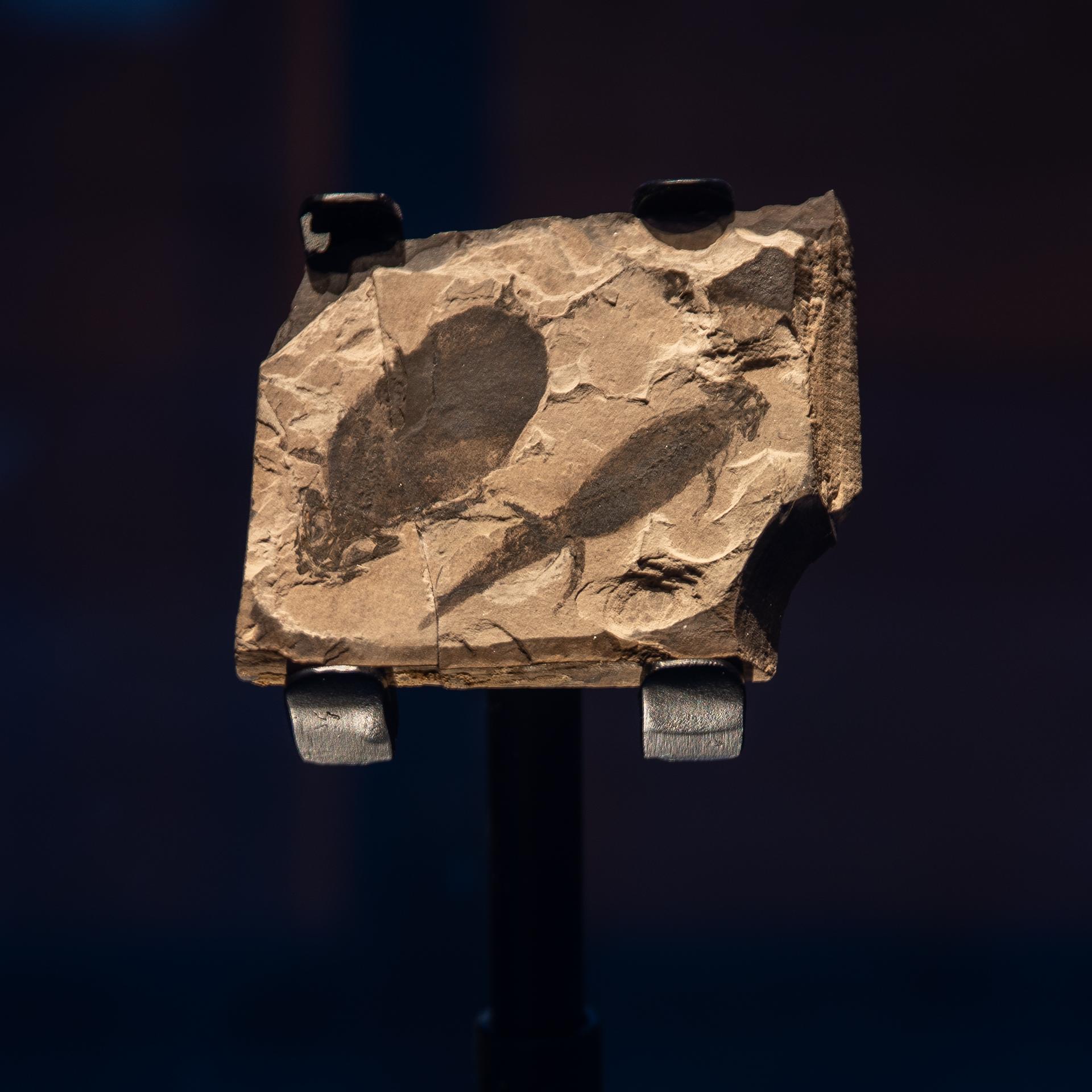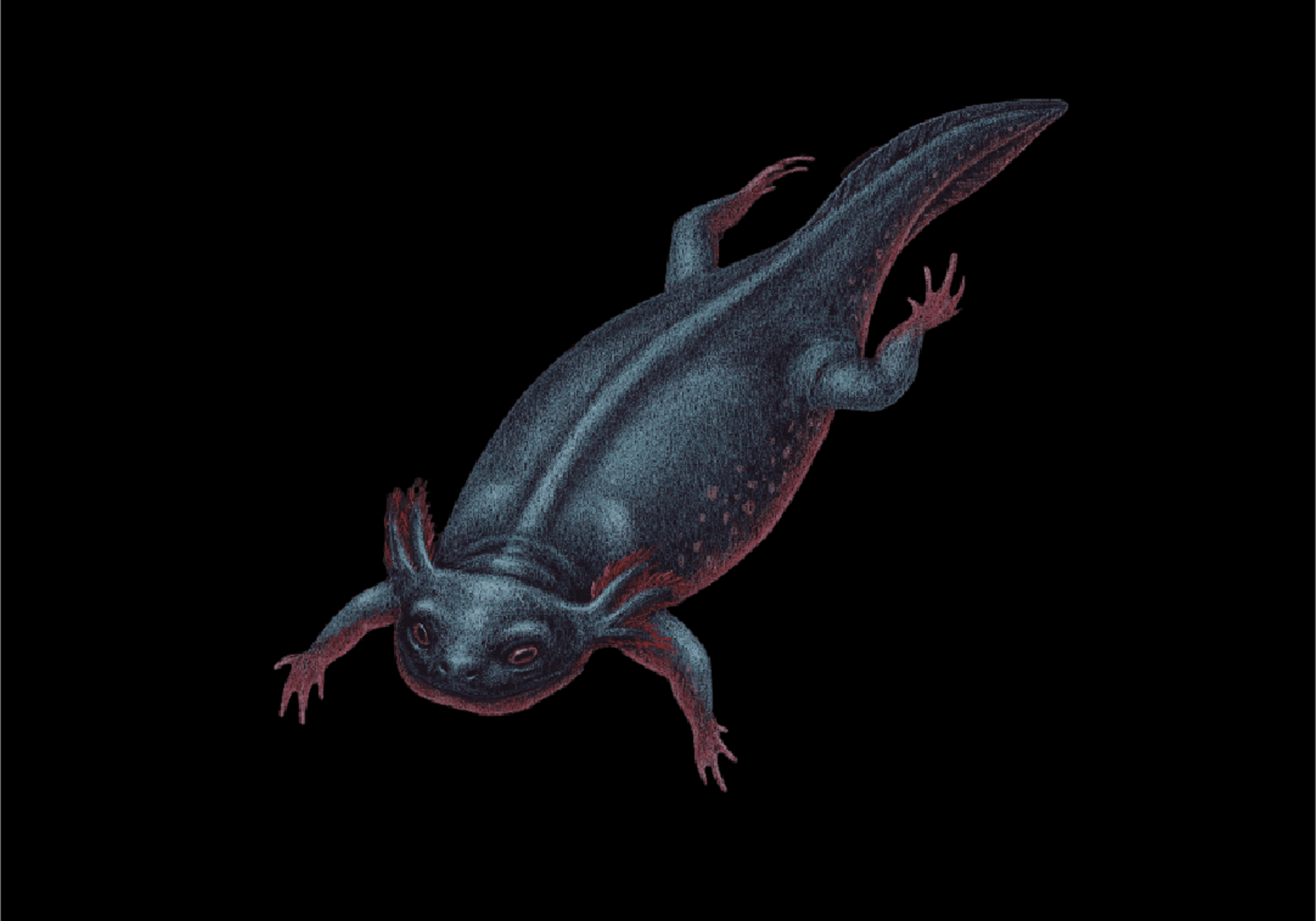Apateon pedestris
The reptilian ruler of the bottom of the lake

What do you do if you are a small, approx. 10 cm-long salamander-like creature constantly in danger of being eaten by large Permian fish and amphibians such as Sclerocephalus? You find a place to live where you can be all alone. Apateon pedestris hid itself away deep at the bottom of lakes and ponds, where there was so little oxygen that we would all suffocate if we ever reached such a depth. In sort of the same way that birds can fly into the air and escape predators on land, Apateon evolved the ability to get down to the bottom of lakes.
It required having enormously effective gills to absorb the tiny bit of oxygen that was down there, which is why Apateon developed six beautiful gills that stuck out on each side of its head and made it look like a little dragon. As the ruler of the bottom of the lake, Apateon pedestris used its big eyes to scout for microorganisms to eat.
It is still a matter of debate whether the group of ancient toads that Apateon belonged to are direct ancestors of our modern salamanders, but try and see how much it resembles the Mexican axolotl ‘walking fish’, which you may be familiar with if you play Minecraft.
In the gallery you'll find a bone-map of the exhibited Apateon. The red-highlighted areas indicate which bones is real.
Facts about Apateon pedestris
Size: About 10 cm long
Weight: Unknown
Period: Early Permian Period (295–290 million years ago)
Food: Microorganisms
Habitat: In water
Locations: Primarily Germany
